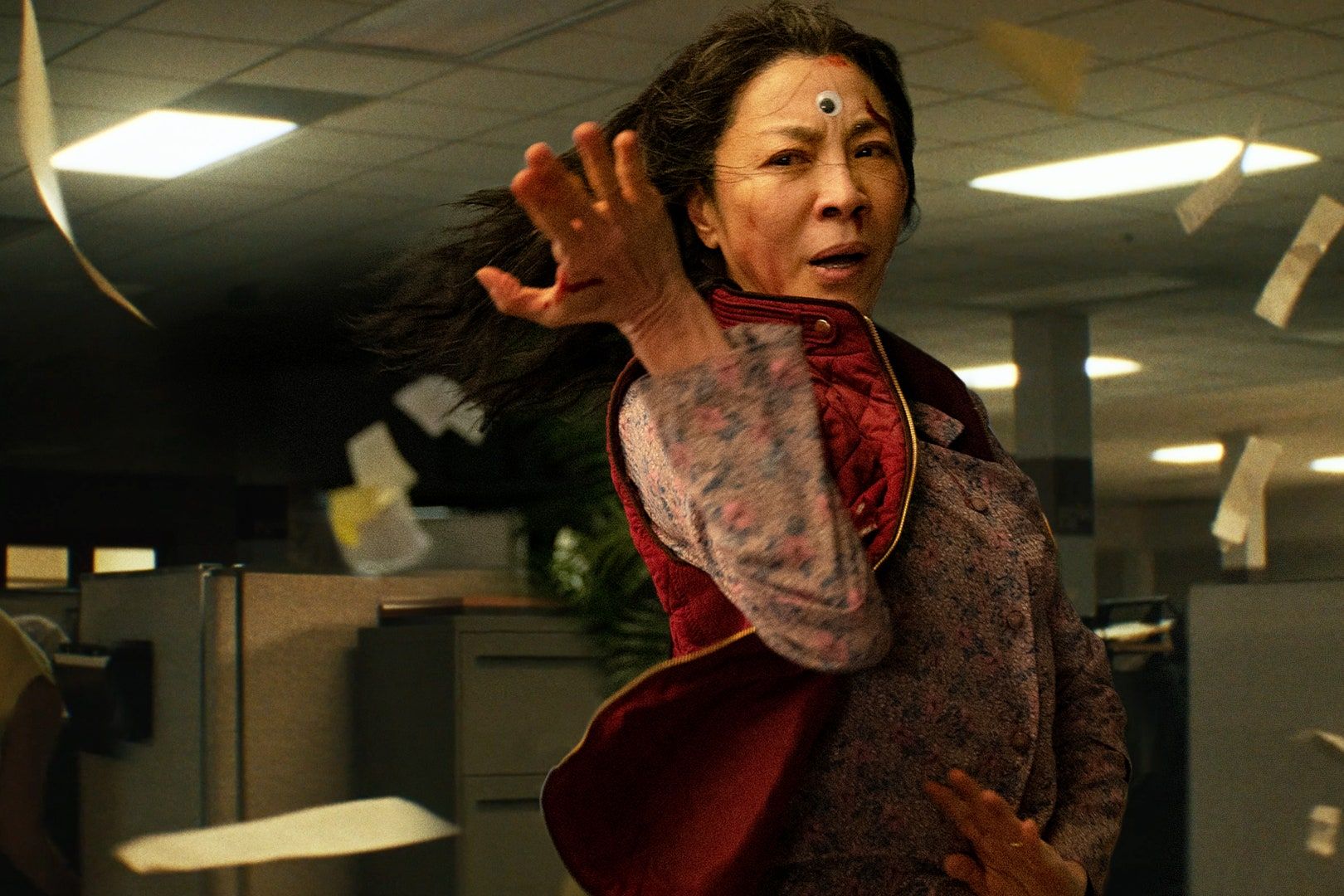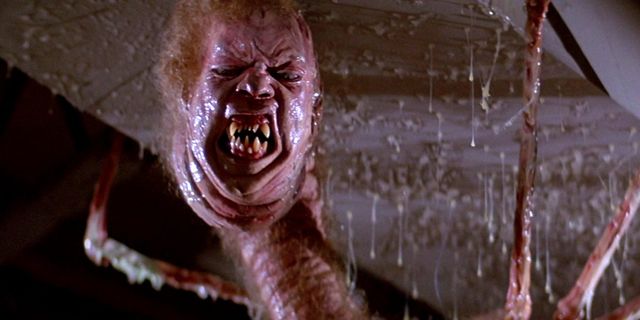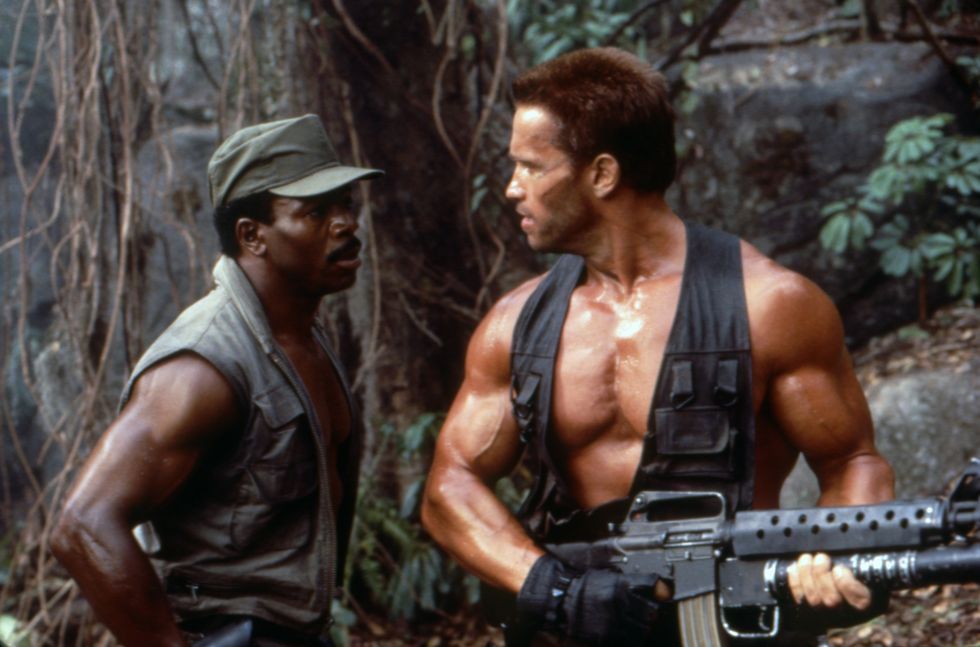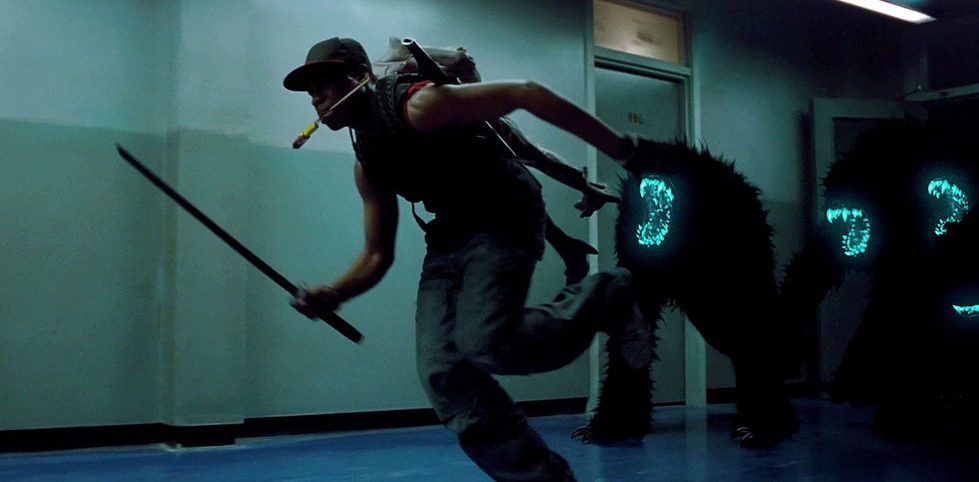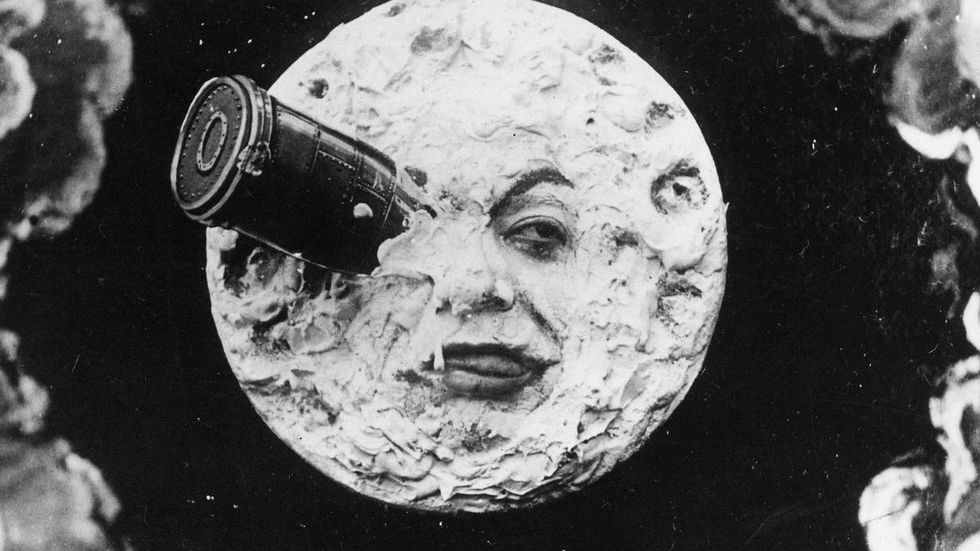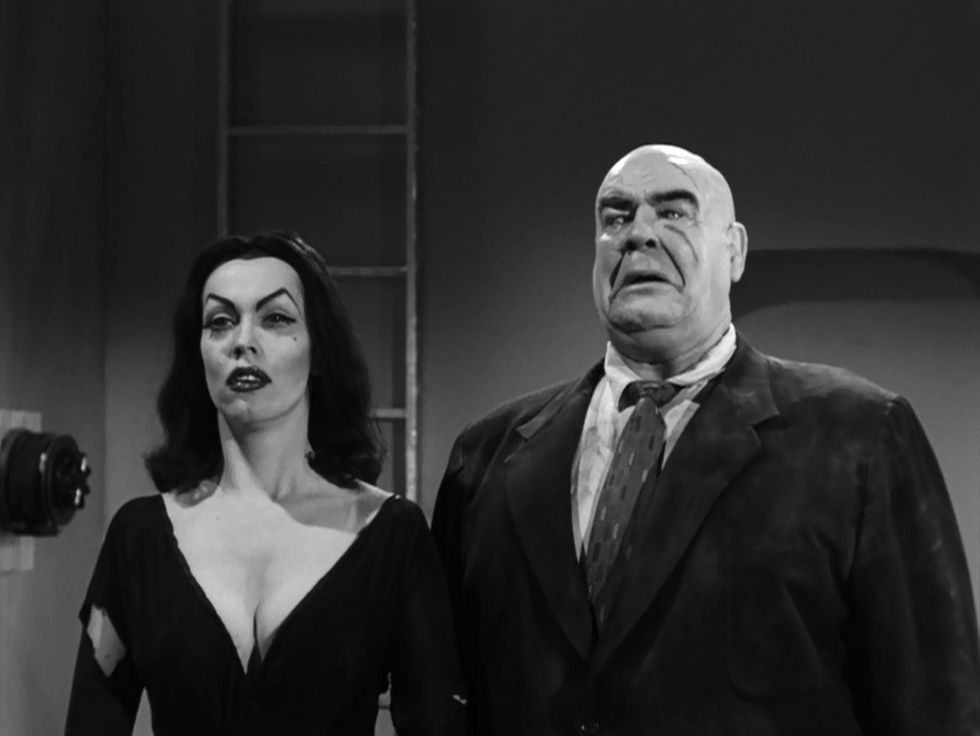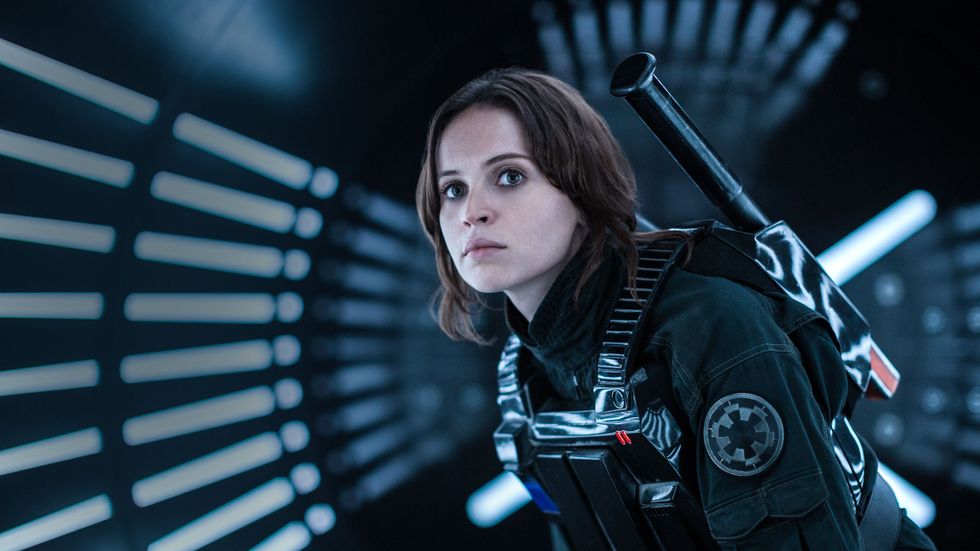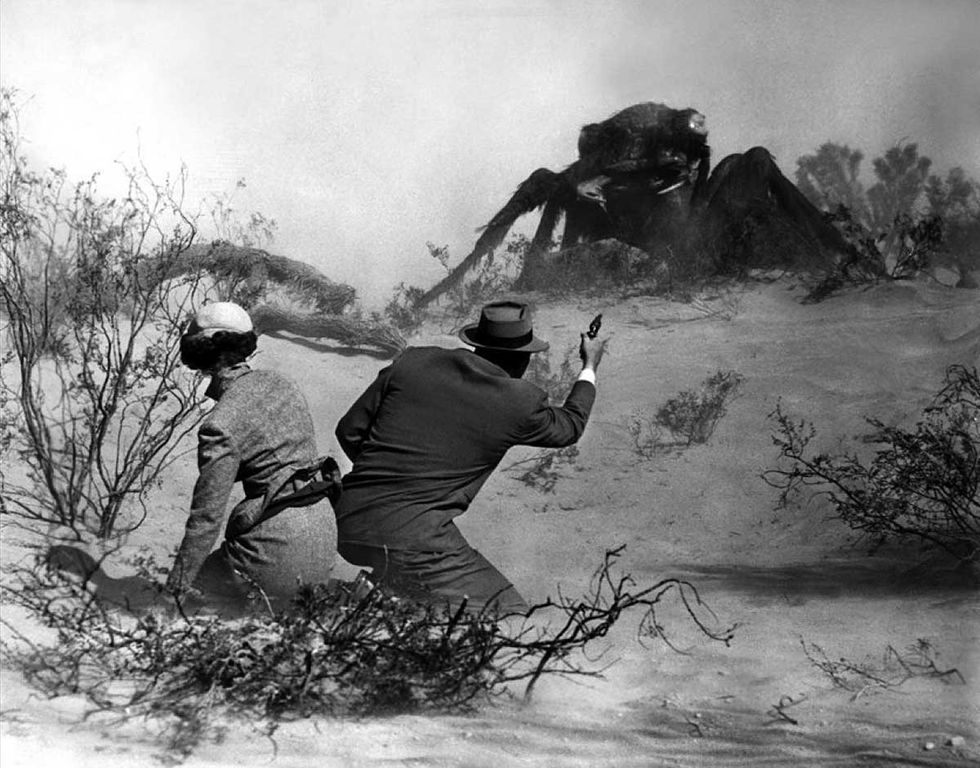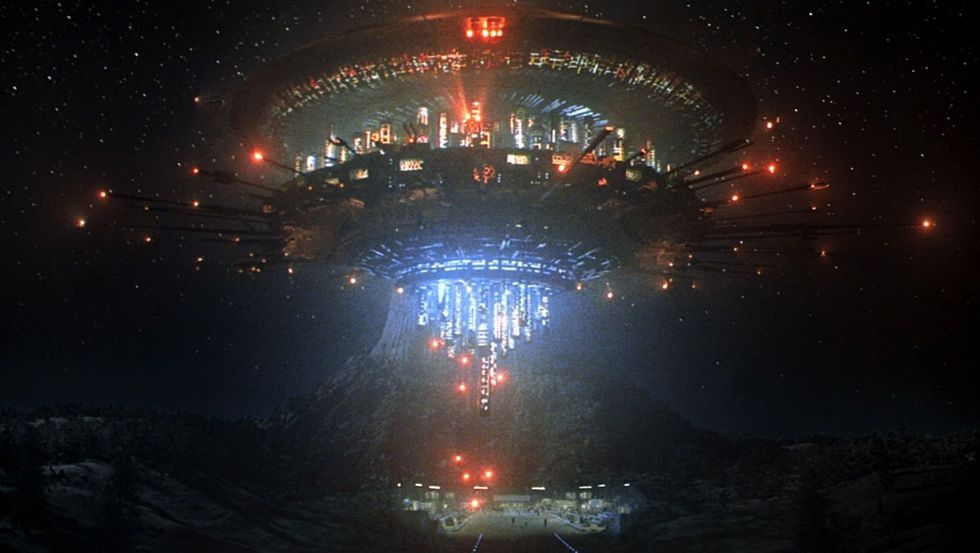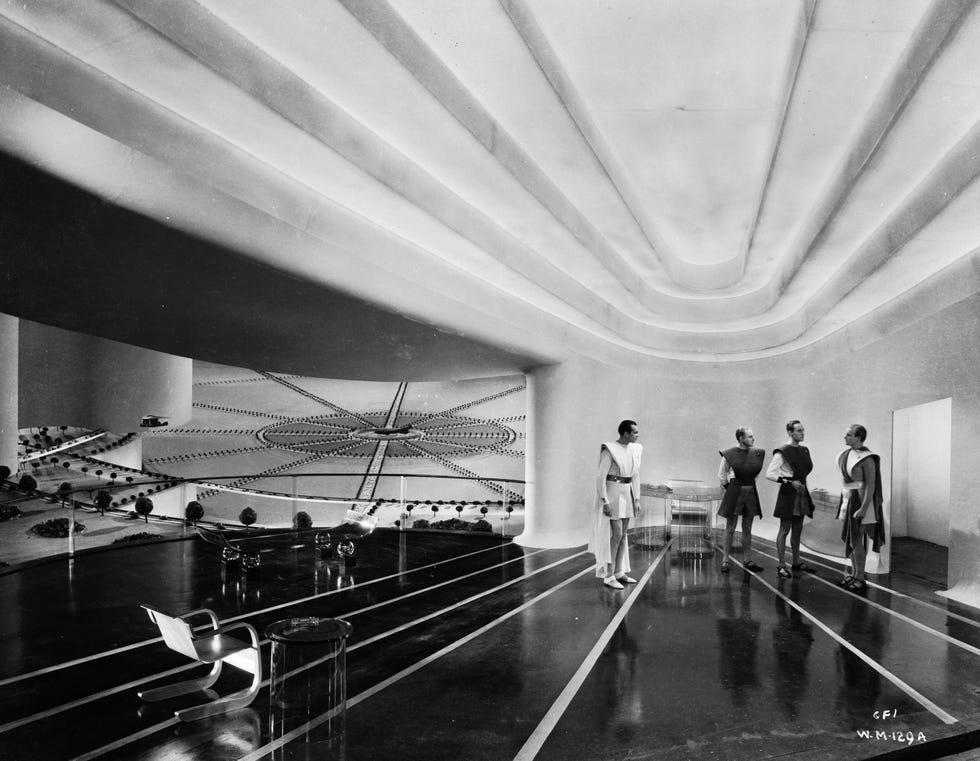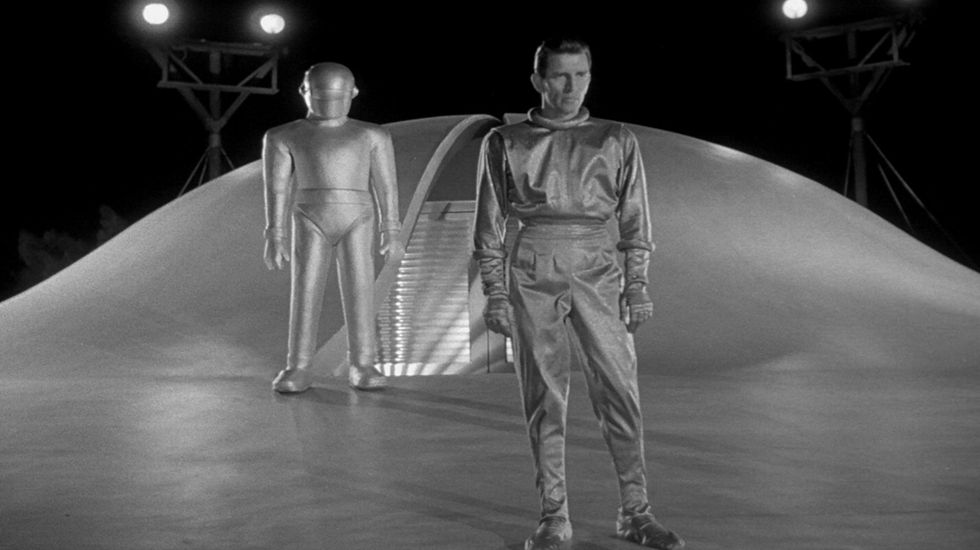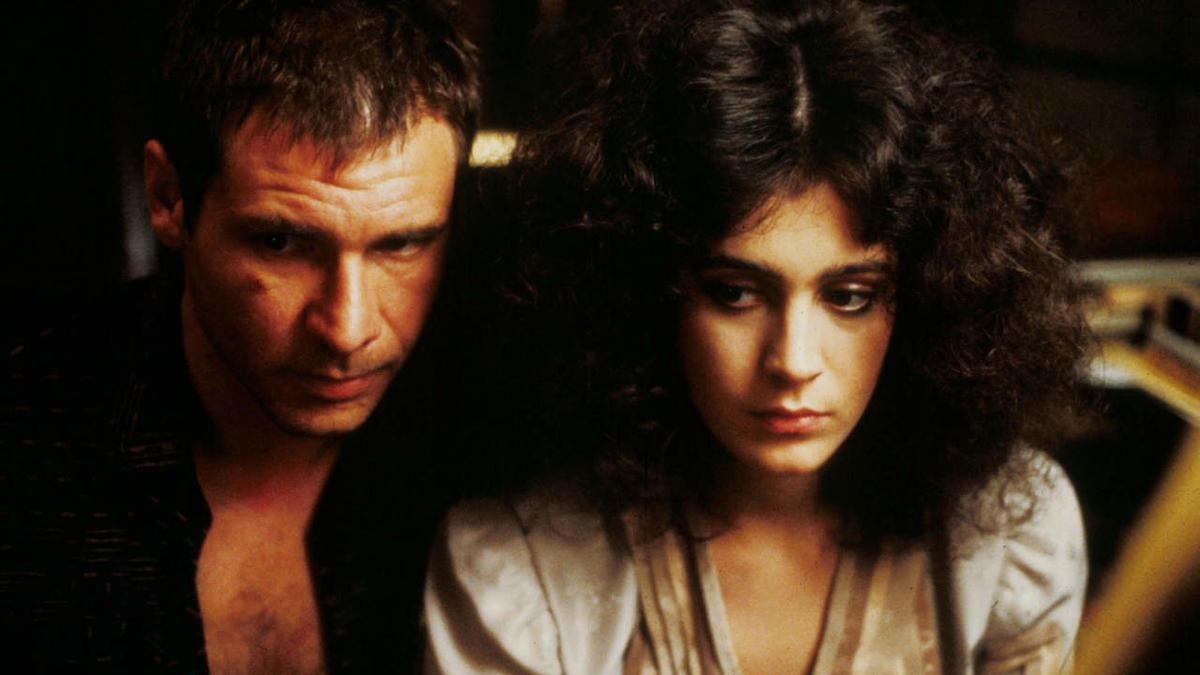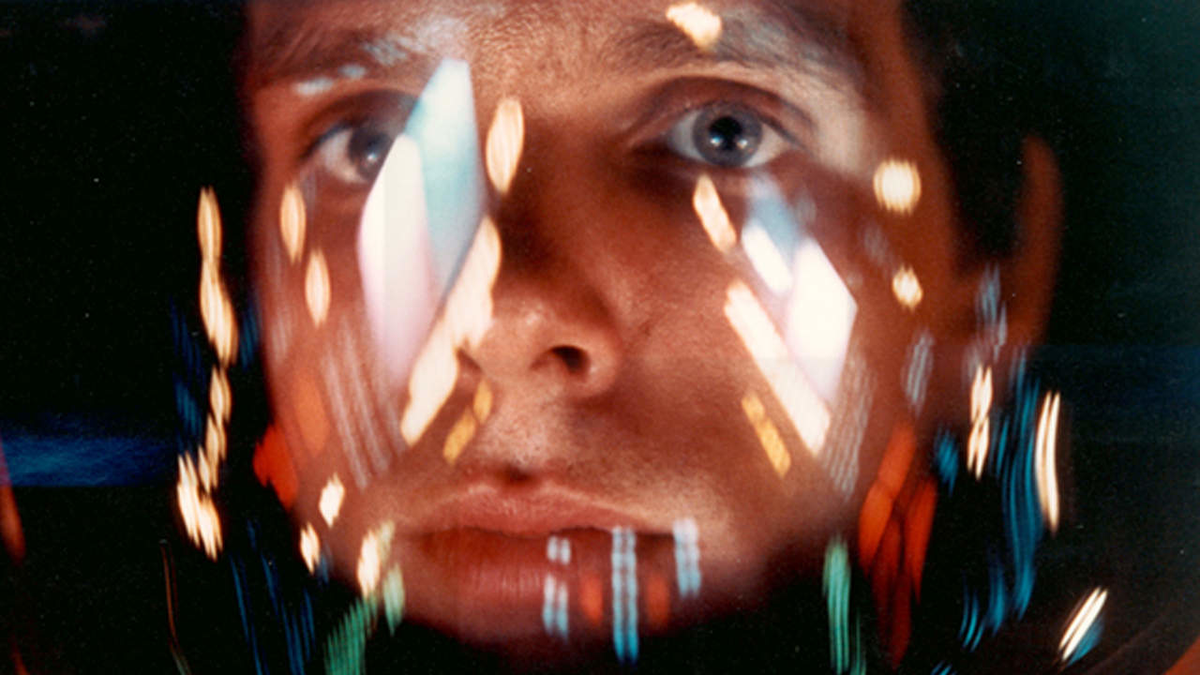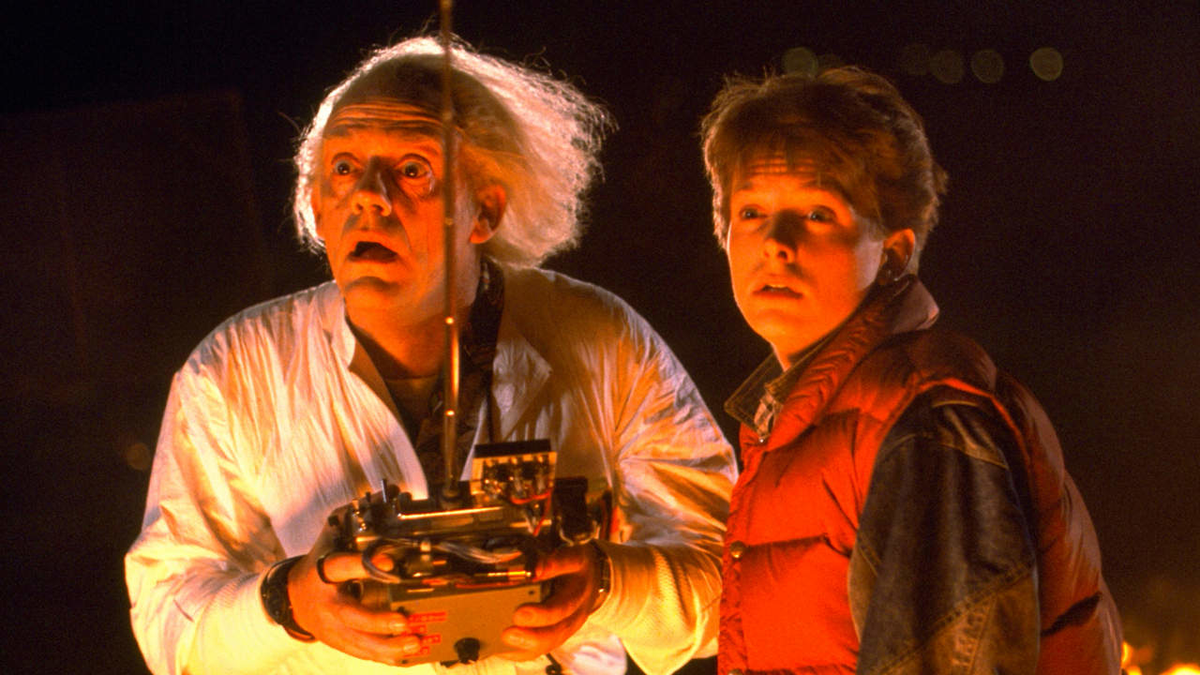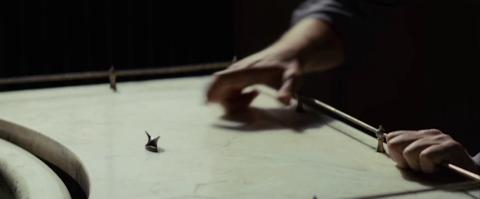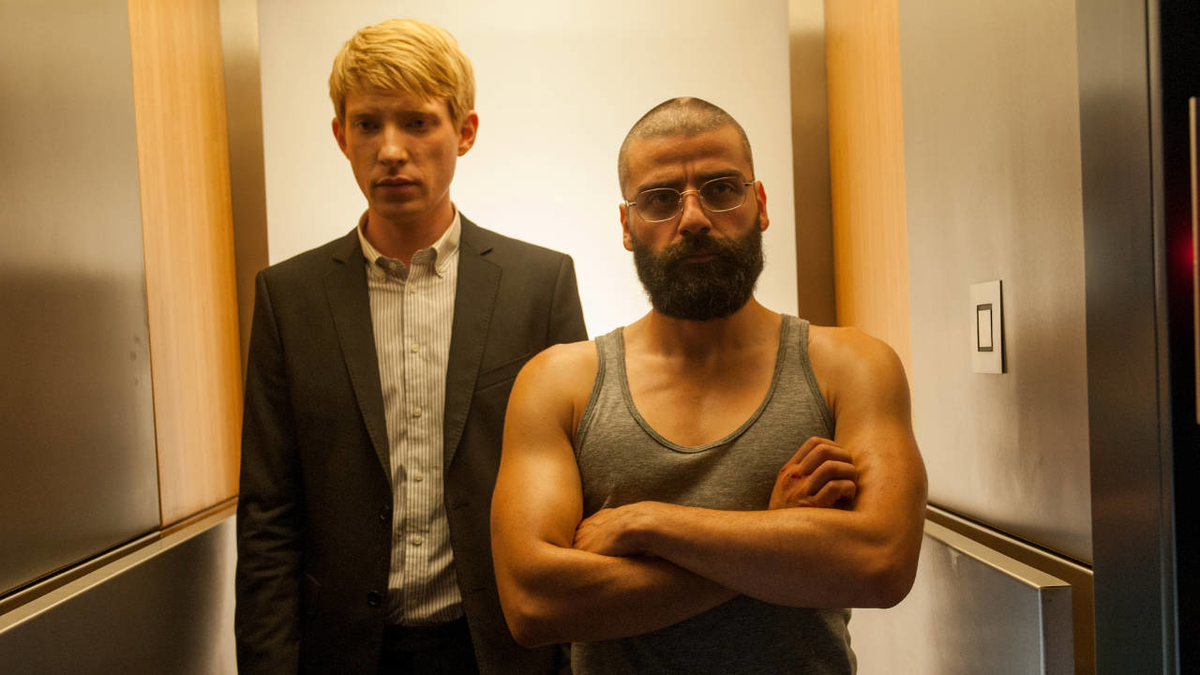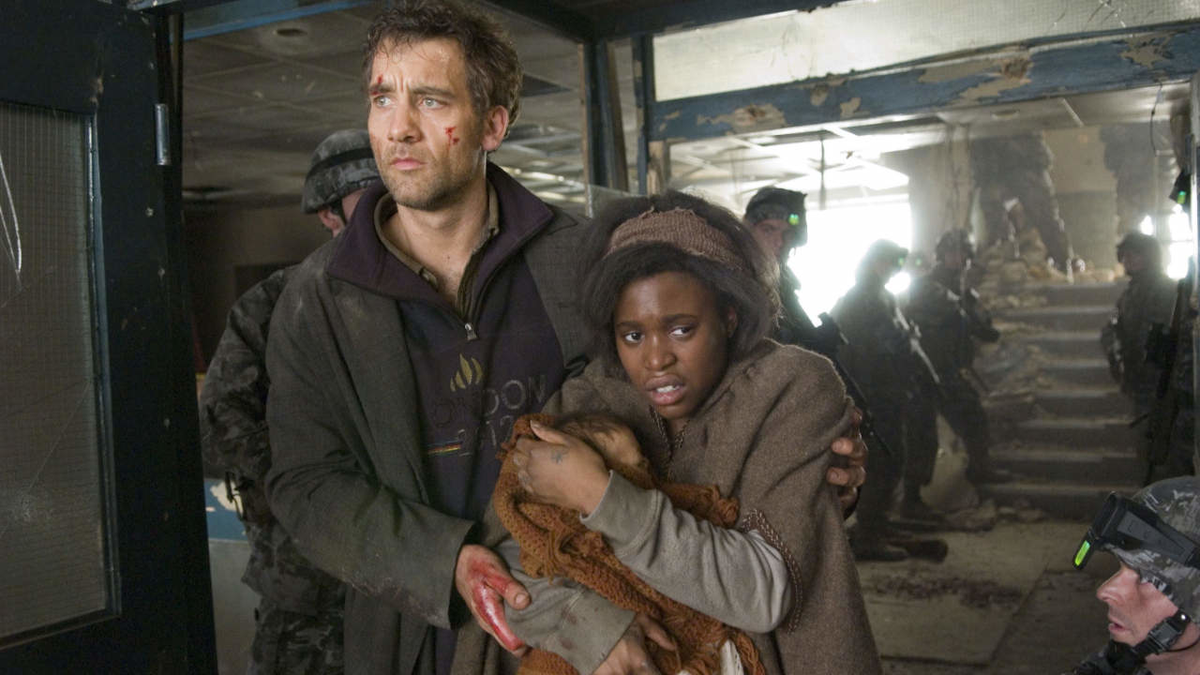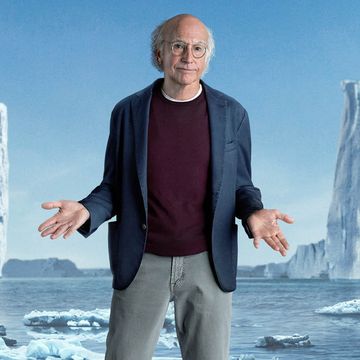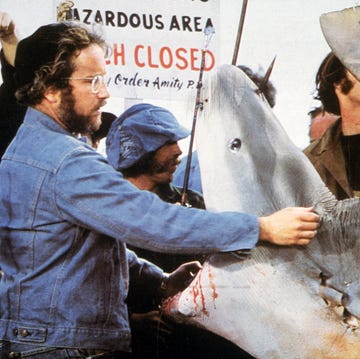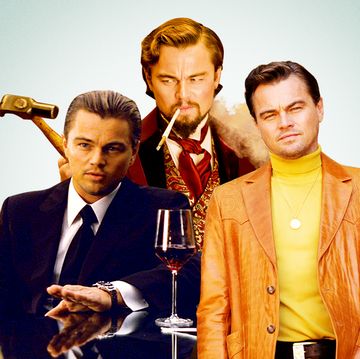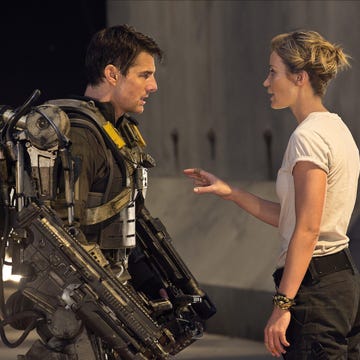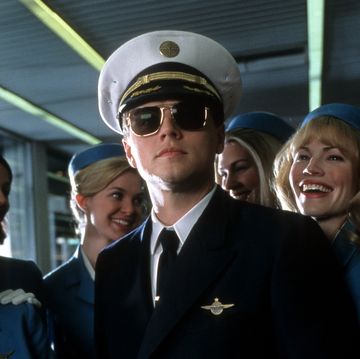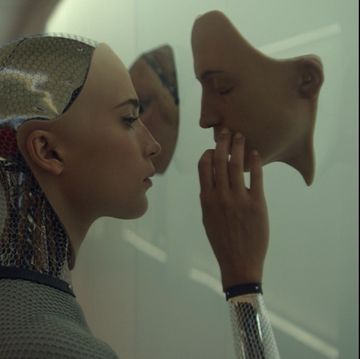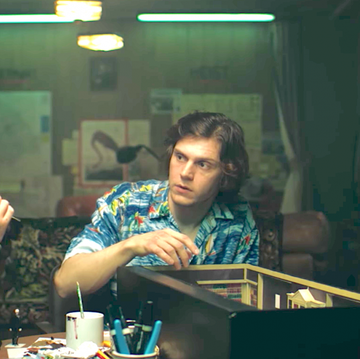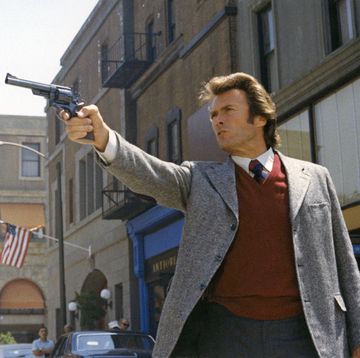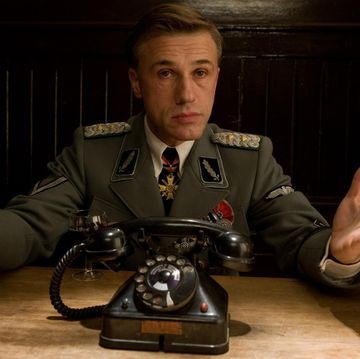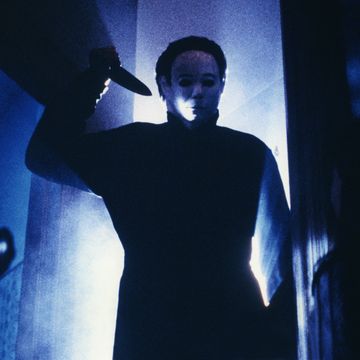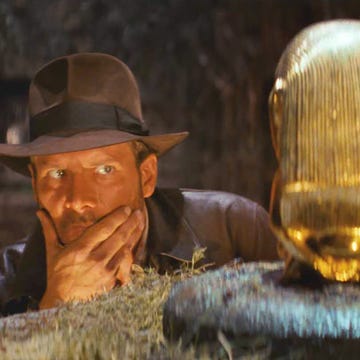Our fascination with what the future might look like has made science-fiction a staple of cinema since the silent era. Georges Méliès’s Trip To The Moon was a landmark moment in film way back in 1902, and filmmakers have been exploring stories of how science, technology and politics might intersect ever since; often with disturbing foresight.
The success of science-fiction has seen it take in countless sub-genres: the B movie; horror; time travel; action blockbusters; arthouse; westerns; conspiracy thrillers; even the odd comedy.
For the most part, though, these films are inherently dark in tone. How many utopian sci-fi films can you think of? We’ll have to come back to you on that one.
What the best sci-fi films do, though, is take a brilliant premise and create a completely realised alternate world. And there are few more compelling stories than those which tell a version of our future. In the technology-obsessed age we live in now, and with machine learning, robotics and environmental disaster becoming reality before our eyes, it’s amazing how many classic sci-fi movies not only stand up, but feel more relevant than ever. These guys were on to something.
We’ll admit to some recency bias in the following list and we’ve tried to spread the net wide across sci-fi’s different strands. Yes, there are some notable omissions too, but who said the future was going to be fair?
The Thing (1982)
Way out in the barren tundra of Norway, a helicopter chases a dog across the snow. If only the Norwegians flying it had had some rudimentary English – 'dog', 'kill it', maybe 'it's a shapeshifting monster which has been hiding under the ice for millennia and it's going to turn into a weird crab-spider freak if you don't explode it immediately' – maybe a lot of bother could have been avoided. But as it is, John Carpenter's body-horror remake of the B-movie The Thing From Another World is probably the peak of his scrungy, livid horror period. While Spielberg had the big hit of the year with the tale of cute little alien fella who just wanted to phone home, Carpenter created the exact opposite: a movie about an alien which turns humans against each other by becoming one of them. Plus. Big Coat Season Kurt Russell never looked better.
Predator (1987)
Predator: the kind of sci-fi you clean up with a mop and bucket, as the Bloodhound Gang might have put it. It's way up there with Commando in the pantheon of bloody, daft Eighties Arnie action splatterers. Arnie is Dutch – that's his name, not his nationality – a Vietnam veteran who uses all his jungle fighting cunning and uncomplicated, brutish manliness to sort out a forward party of alien invaders. It's not a subtle film, or an even halfway well-written one, or a politically defensible one. It is fun though.
Everything Everywhere All at Once (2022)
The hype around Everything Everywhere All at Once was intense. It was the multiverse movie that out-stranged Dr Strange, the saviour of indie blockbusters, a financial juggernaut that showed the mid-market summer hit was back. It got a little overegged. The wackiness was too much for some. But throw yourself into a timeline where you never heard all that buzz and go with it, and you'll find a heartfelt family drama told from a wildly original perspective – or, to be exact, about 30 different perspectives. Michelle Yeoh is Evelyn, a woman whose life is fracturing apart: her husband wants a divorce, her daughter is estranged, and the taxman is on her back. But then she finds out she's one of myriad of Evelyns who exist across myriad timestreams, and her crappy life makes her the only one who can save reality from being destroyed by taking the alt-Evelyns' skills. That Marvel comparison doesn't end there, by the way: the jaw-dropping fight sequences were choreographed by the same team who did Shang-Chi and the Legend of the 10 Rings.
Gravity (2013)
Alfonso Cuaron's head-spinning spacewalk disaster flick was one of the few films ever to have made 3D tech feel like a genuinely essential cinema innovation, and even shorn of its slightly nauseating third dimension it's a taut, lean survival thriller. Dr Ryan Stone (Sandra Bullock) is on her first space mission to help repair the Hubble telescope, along with veteran Lieutenant Matt Kowalski (George Clooney) when a cloud of space junk really ruins their big day out. Lost and alone in space, they only have each other to get home.
Attack the Block (2011)
Joe Cornish's debut film is perhaps the first alien invasion flick to face extraterrestrials – "big alien gorilla wolf motherfuckers," as one character puts it – off against the residents of a Stockwell tower block. Just a few years after all David Cameron spent whole speeches trying to persuade Middle England not to soil itself about the idea of 'hoodies', Attack the Block reckoned that with the continued survival of the human race on the line they'd be who you'd want on the front line. Moses (a very young and very magnetic John Boyega in his first big screen role) and his mates mug nurse Samantha (Jodie Whittaker) one Guy Fawkes Night, but are interrupted by a falling alien. Holed up in their tower block, they have to work together to save humanity.
Primer (2004)
Some time travel movies are happy to make do with hand-waving non-explanations of exactly how their particular brand of continuum-twisting tech works. Primer is not one of those time travel movies. It goes hard on the tech angle, never pandering to its audience but building up its plausibility at the same time as showing how the weighty implications of meddling with time tear apart experimenting friends Abe and Aaron. And it did it all with a $7000 budget. Pro tip: have a look at this handy diagram explaining how the time travel machine works before you sit down and watch it, because wowee: the dialogue does get a bit techy at points. This is proper hard sci-fi done well though, with an emphasis on the way that most planet-shaking inventions and discoveries come along almost by accident.
Dune (2021)
The book so vast and visionary that it defeated David Lynch and Alejandro Jodorowsky in their separate attempts to turn it into a blockbuster – although the documentary about Jodorowsky's aborted effort, Jodorowsky's Dune, is a great watch in its own right – was finally wrangled into the hit its fans always said it should be. Denis Villeneuve's star-packed adaptation (Timmy Chalamet! Zendaya! Oscar Isaac! Rebecca Ferguson!) about wrangling over supplies of a substance that makes interstellar travel possible marries Villeneuve's usual vast-scale visuals with a neatly balanced story that doesn't get bogged down in the sand dunes of politicking. And the moment that the great big worm turns up does not disappoint.
A Quiet Place (2018)
It's always exciting when a new horror film catches fire just by word of mouth. The relatively unheralded directorial debut of Jim from The Office didn't feel like the sort of thing that was going to become so popular that it would inspire imitators almost immediately (we see you, Bird Box, even if you can't see us). But the mixture of a simple premise (don't make any noise or the aliens kill you), great performances (Emily Blunt and Millicent Simmonds as her deaf daughter) and a genuinely frightening monster turned A Quiet Place into a phenomenon. It's somehow oppressive and claustrophobic as well as feeling expansive.
Voyage Dans La Lune (1902)
Georges Méliès was a pioneer of visual effects in cinema and made hundreds of short films in his lifetime. Some were playful demonstrations of how trick photography and jump cuts could make the impossible suddenly real on screen; others were deeply eccentric fantasies built around set pieces like the The Astronomer's Dream. His most beloved film is somewhere between the two, and would become the foundation stone of science fiction fantasies to come. Loosely adapted from Jules Verne's From the Earth to the Moon and Around the Moon, some of the key themes of all sci-fi are here already – most notably, humans capturing aliens and then being surprised when that turns out to be a terrible idea.
Annihilation (2018)
Alex Garland's follow-up to Ex Machina is a very different beast: woozier, more impressionistic, and with four mouths coming out of its back. Ew. When a meteorite lands on a piece of American coastline, a weird shimmering haze starts to expand from the crash site. Unfortunately the haze seems to be mushing people up and putting bits of them in all the wrong places, or turning them into piles of goo. Natalie Portman is one of a group sent to work out what's going on, and finds doppelgängers, a bear with the voice of her mate and Oscar Isaac cutting about with a grenade. Also, more goo-people.
Plan 9 From Outer Space (1959)
The legendarily awful director Ed Wood's most legendarily awful film is an essential watch if you're into sci-fi. Not because it's good, obviously, although there's a lot of laughs to be had at the utterly cack-handed script, acting, direction, design, plot, continuity, framing, etc etc etc. It's more a testament to the way that sci-fi as a genre tends to call out to the most vaultingly ambitious filmmakers and writers. As it's a tradition which is all about the biggest ideas, you can make yourself a hit even with next to no money. Not this one, though. It's bad. It is baaaaaaaad.
Rogue One: A Star Wars Story (2016)
This is the story behind the story of the original Star Wars: those plans to the Death Star didn't come out of nowhere, you know. Rather, they were pinched in a daring raid by a ragtag bunch of misfits led by Felicity Jones and aided by Riz Ahmed, Diego Luna and Alan Tudyk as a reprogrammed Imperial droid. It's the strongest of the Star Wars films made since the original trilogy, with a very distinctly Star Wars vibe – and an extremely good Darth Vader freak-out sequence – as well as a verve all its own. The ending, in particular is a one-two punch of devastation and a new hope.
Them! (1954)
Of all the nuclear paranoia films of the mid-Fifties, this is the only one which imagines Earth being under attack by gigantic ants who've been engorged by all those bomb tests in the New Mexico desert. Schlocky as it sounds in the abstract, this remains a pacy and well-made thriller which is as much about the haunting psychological effects of the looming threat of nukes as it is the gargantuan ants which threaten to overwhelm LA.
Close Encounters of the Third Kind (1977)
The sense of wonder and optimism which floods through Steven Spielberg's second gigantic blockbuster is the source of its enduring power and its bittersweet aftertaste. One of the recurrent motifs of sci-fi is that, one day, humanity will progress far enough along its evolutionary track to take its place among the stars. That's not something it's been into very much lately – Arrival aside – as we've been quite busy destroying our own planet in new and innovative ways.
But you can read everyman Roy Neary's descent into UFO-chasing mania in small-town Indiana after a brush with what he thinks are aliens however you like. The very post-Watergate vibe that authorities are always hiding something from you, the parallels to the Old Testament when the aliens eventually pitch up at Devils Tower, the hands-across-the-water attitude to outsiders when the Iron Curtain seemed like it'd never fall: it's all there if you want it. It's a special, special film.
There are a few different cuts out there, so beware: skip the special edition from 1980 and go for either the original 1977 cut or Spielberg's 1998 director's cut. That one's really, really long, but really, really good.
Things to Come (1936)
On Christmas Day 1940, somewhere in the south of England, war is on everyone's mind. An aerial bombing raid signals the start of a conflict which will reshape everything, and leave no part of the world untouched. A flop when it was first released, this adaptation of HG Wells' 1933 book The Shape of Things to Come now feels oddly prescient, even if the particulars of what the middle of the 20th century might hold were a little more doomy than what ended up happening. (The Sixties, the film suggests, would be less about the counterculture and the youth revolution than plague-riddled survivors staggering around desolate cities.) In the wreckage of total war, Ralph Richardson's Mussolini-esque 'Boss' Rudolf maintains power over an increasingly desperate and demoralised populace. But, in an optimistic twist, the old world which Rudolf represents has to make way for science, technology and progress. It's beautifully designed and ambitiously mounted, and still a spooky illustration of sci-fi's power to imagine futures which arrive sooner than you think.
Sorry To Bother You (2018)
Part dystopian satire, part workplace comedy, all scorched earth anti-capitalist diatribe, Sorry To Bother You is a film that you really need to just throw yourself into. LaKeith Stanfield is Cassius 'Cash' Green, a struggling telemarketer who takes a tip from an old hand to get ahead: to use his "white voice" on the phone. Suddenly, with David Cross's voice coming out of his mouth, he's a selling sensation. While his mates unionise to get better conditions, Cash clambers up the corporate pyramid. But what he finds at the top is genuinely disturbing. Like, body horror on a par with The Thing disturbing.
High Life (2019)
Claire Denis was one of a string of auteurs to grab Robert Pattinson during what archaeologists of the future will refer to as the Robnaissance. She fired him into space on board a spaceship filled with a motley crew of criminals sentenced to death sentences. They're being experimented on by Dr Dibs (Juliette Binoche) and her magic wanking machine in the pursuit of successful artificial insemination. Unfortunately, a nearby black hole has other ideas. It's not very cheery, but it is a big thinker.
Metropolis (1927)
The original dystopian futureshock, Fritz Lang's opus casts a long German Expressionist shadow over every other film which sees a future where penthoused one-percenters keep the working everyman scrabbling around in the dirt. Lang had been to New York in 1924 and, enraptured by its seemingly infinite lights and vast skyscrapers, married its art deco vastness with the story he'd already started working on. A rich idler falls for a woman from the underclass, one thing leads to another, and the stratified society ends up in rebellion while a robot woman runs amok. It was the first film added to UNESCO's Memory of the World Register, putting it up there with the Bayeux Tapestry and the Gutenberg Bible in the tally of humanity's greatest hits.
Jurassic Park (1993)
It would have been easy to write Jurassic Park off as just a re-run of Michael Crichton's Westworld, this time with dinosaurs taking over a theme park rather than androids. But in both novel and cinematic form, Jurassic Park became a classic because it took a question every child has asked – "What would happen if dinosaurs came back?" – then mixes in enough hubris and heroism to transform a whimsical thought into something akin to a Greek tragedy.
This was the third of Spielberg's great sci-fi films, and arguably his best, before he got all distant with AI and Minority Report. But if Close Encounters was occasionally too academic, and ET too saccharine, then Jurassic Park was the perfect blend of action, family adventure and white-knuckle terror. It rewards repeat viewing and finds new fans in every generation; there's a reason that, once Covid-19 cleared the cinemas of new releases, they started playing Jurassic Park on repeat.
The Fifth Element (1997)
Depending on who you ask, Luc Besson's space opera is either a high-concept masterpiece or unwatchable bilge (there's a reason Chris Tucker's radio DJ, Ruby Rhod, is regularly voted one of the most irritating characters ever committed to film). But whichever side of the critical fence you fall, you can't deny the film's ambition.
Conceived by Besson when he was 16, it took a further 22 years – and $90m, a European record at the time – for The Fifth Element to finally reach the screen. It tells the story of a special forces operative-turned-cabbie (Bruce Willis, basically playing a hungover version of John McClane) in the 23rd century. He accepts a ride from the wrong fare – well, she plummets into his taxi having escaped a government research facility – who may or may not be the Messiah, and then has to protect her from all kinds of nasty people who want to harness her powers for their own ends. Really, though, the plot is irrelevant. You're here for Gary Oldman, chewing scenery as an arms dealing (and forehead-bleeding) baddie; John-Paul Gaultier's space-but-make-it-sexy costumes; and, why the hell not, Chris Tucker, in full motormouth mode. He's less annoying than you remember. Honest.
The Man Who Fell to Earth (1976)
Originally, director Nic Roeg wanted Peter O'Toole to play Thomas Jerome Newton, an alien who lands in New Mexico looking for water to save his drought-struck home planet. But then he saw David Bowie's otherwordly brittleness in the documentary Cracked Actor. Though Bowie was in the make-up chair from 2am until 10am having his alien prosthetics applied, that oddly glowing skin, elfin build and shock of orange hair was all his own, and equally unearthly.
Bowie's mixture of detached coldness and human fragility are remarkable – even if he later said it was largely because this was deep in his red peppers, milk and cocaine diet days – but it's Roeg and cinematographer Anthony B Richmond's eye for the surreal, the disorientating and the hazily evocative that makes The Man Who Fell To Earth endure.
Silent Running (1972)
Nearly all plant life is dying out on Earth, so the powers that be have fired samples of as many species as possible into orbit around Saturn in giant geodesic greenhouses, along with botanists to tend to them. But when the call comes through to start destroying the domes, one of them – "an intergalactic tree-hugger," in Edgar Wright's estimation – rebels and attempts to save the last forest in the solar system. It stands out still for its beautifully made models, the little stomping three robots, Huey, Dewey and Louey, and its prescient environmental outlook.
Arrival (2016)
That title is a good one. This isn't an alien invasion, or a threat, or a battle royale. Alien life has arrived, and the key to working out what humanity does isn't found in the military arsenal or at the White House – it's through a linguist trying to work out what the aliens' cryptic language means. It's a refreshing, bold and adventurously told story which spins through time and memory, using visitors from outers pace to explore inner space.
After a bit of a lull in big, think-y, ideas-led sci-fi films, Denis Villeneuve's film proved again that sci-fi is where the biggest concepts and most profound thoughts about the universe and our place in it come out to play.
The Day the Earth Stood Still (1951)
Not the Keanu Reeves remake from 2012 – The Day the Earth Sat Bored, more like – the one which set the standard for all the alien invasion dramas to come. When a spaceship lands in Washington, a jumpy soldier shoots the humanoid who pops out to say hello along with his giant robot mate. Understandably narked, the aliens try to understand why humanity is so suspicious – and let us know that far from having to worry about what the rest of the universe could do to us, the rest of the universe is scared of what we might do to ourselves. Smart, reflective and spiritual.
Blade Runner (1982)
The brooding Vangelis score, the slow pans over a nightmarish Los Angeles of the future, a young, edgy and crew-cutted Harrison Ford in the title role; that’s before you remember the original story comes from the all-seeing mind of legendary author Phillip K Dick. So many reasons to watch and watch again – especially now in Ridley Scott’s definitive cut. The wider cast is sensational but it’s the future-noir tone and atmosphere that seeps off the screen and makes it feel fresh every time. Its exploration of what it means to be human in the age of technology makes it a classic; and a heartbreaking one at that.
2001: A Space Odyssey (1968)
Forget sci-fi – Kubrick’s masterpiece is up there with the best films in any genre. The director applied his customary intelligence, creativity and obsessive detail to the sci-fi movie by approaching one of its greatest writers – Arthur C Clarke – to work with him on the script. The result is thought-provoking, visionary and baffling in the best possible way; a true journey through space and time in its own right. Every sci-fi film since has been influenced in some way by its style and production design. That it still looks fresh, 52 years on, is remarkable (at one point, they’re even doing the first ever Zoom call). Somehow Kubrick also manages to turn a computer into one of cinema’s great baddies. A film that stays with you and demands regular resits.
WATCH NOW
E.T. the Extra Terrestrial (1982)
Question: what would we, the human race, do if an alien actually managed to mission it light years across the universe and land on planet Earth? Probably hound it (and the person who discovered it) to death, if E.T. is anything to go by. You don’t need us to tell you that this is one of the greatest stories ever committed to the big screen, and over 40 years on, it still remains as such. With an astonishing emotionally intelligent performance from Henry Thomas as Elliot – the little boy who finds the alien (his audition is equally mesmorising) – the film manages to marry what can often be the cold, dystopian world of sci-fi with powerfully affecting themes. The iconic scene of Elliot and E.T. flying through the sky through on a bike was genuinely jawdropping as a kid; as an adult, it’ll still give you the shivers, alongside John Williams’ epic score. One of Steven Spielberg’s finest works (it was awarded four Oscars), it’s still used as a reference point for modern classics (Stranger Things et al) four decades on.
Back To The Future (1985)
Surely as good as sci-fi as family entertainment can possibly get. Audiences have always been fascinated by time travel but before this, no one had made it so smart, original and funny. By flitting the story between the present day and the Fifites, the film even doffs its hat to the genre’s B-movie roots, while Michael J Fox and Christopher Lloyd embark on one of cinema’s most unlikely buddy partnerships. There’s even an argument to be made that its sequel was as good, or possibly better. (Let’s not talk about Three.) A film that put ‘flux-capacitor’ into the general lexicon, and there’s nothing more sci-fi than that.
The Terminator (1984)
The breakthrough film of James Cameron and Arnold Schwarzenegger is a stone cold sci-fi classic. Arnie is perfectly cast as a cyborg assassin sent back from 2029 to 1984 to kill the mother of John Connor, the resistance hero fighting back against the machines that have taken over the Earth. What follows is essentially a relentless chase movie, but executed with style, dread and cinematic flourish, spawning a lengthy franchise and a host of imitators. Yes T2 is more polished and ambitious, but the pace and focus of the original still pips it.
Star Wars: A New Hope (1977)
George Lucas’s Star Wars saga virtually invented the space adventure – and spectacularly so – but which is most deserving of a place in the all-time list? The Empire Strikes Back would be many fans' and critics' favourite, pitched as the franchise’s emotional heart. Yes it is darker and moodier, some say richer, but we can’t look past the one that started it all – Star Wars – or Star Wars: A New Hope as we are supposed to call it now. Every scene is memorable, every character ingrained in our cultural psyche; it works on its own and sets up everything that follows. So much so that JJ Abrams’s comeback film, A Force Awakens, was a virtual remake. Surely that’s evidence enough of how much Lucas got right first time round. A story that has spectacle, humour, excitement, pathos and the greatest bad guy of all-time.
The Matrix (1999)
We know that science-fiction loves a dystopian conspiracy about the true nature of existence, but The Matrix really ramped this one up to eleven: humans as nothing more than batteries for an unspecified AI who now run the world? And life as we currently know it as just a simulation? Yes, you’d better sit down. Its timing at the dawn of the internet age gave its punch even greater power, with its computer hacker – Keanu’s Neo – the new Messiah to save humanity. Stylish, gripping and with a premise so compelling that Elon Musk, amongst others, thinks it might be true, the action scenes have been endlessly ripped off and its predictions about 21st century life have taken it beyond mere cult.
Alien (1979)
Horror and sci-fi have gone hand in scaly hand since the early Frankenstein flicks of the Thirties. Fear of the unknown is a powerful subject, after all. It’s in the modern era, though, that sci-fi horror has emerged as a field in its own right, and most if it can be traced to Ridley Scott’s Alien – only his second feature film and his first in the genre – which not only spawned a succession of sequels but hundreds of imitators. Occasionally dismissed as a conventional scary story that happens to be set in space, this view fails to acknowledge how well Scott creates the world of a future space crew and lays on the terror when it comes under attack. Perhaps best remembered for the alien emerging from John Hurt’s stomach, it also introduces Sigourney Weaver’s Ripley; one of the great female action characters in film history.
Eternal Sunshine Of The Spotless Mind (2004)
A film that doesn’t immediately shout sci-fi, possibly because it is so successful at ploughing its own furrow. Love in sci-fi is rarely done at all – and never this well. In a world where regrets and bad memories can be erased, Carey and Winslet play out a sweet, funny, chaotic and entirely convincing depiction of how love can rise and fall – inventively scripted and directed by Charlie Kaufman and Michel Gondry. Ultimately it’s a twisted celebration of the fragility of human love against the logic of modern life and technology – however painful it might be.
Inception (2010)
Where director Christopher Nolan’s other powerful sci-fi offering – Interstellar – has more obvious and immediate sci-fi associations, his 2011 film, Inception, feels like a true original. Yes it melds heist and action movie conventions but its simple premise of ‘what if people could share the same dream', via an imaginary piece of technology, is sci-fi at its most inventive. It can feel bewildering at times, but in way that makes you want to watch it again. And that brings us to perhaps the most surprising (and, at the time at least, encouraging) part of all – that a film this innovative and challenging could also be a massive blockbuster hit with the much-derided popcorn-munching masses.
Solaris (1972)
Russian director Andrew Tarkovsky saw most Western sci-fi as lacking in human emotion, more obsessed by the technology it was depicting. Solaris was intended as an antidote. Its plot focuses on the emotional crises of three astronauts in a remote space station orbiting the distant planet of Solaris. Yes it’s slow, ‘difficult’ and a world away – literally in this case – from the action which dominates many modern sci-film films but, once you stop twitching in your seat and settle in to its meditative pace and rhythm, you start to see a humanist and film artist at work. Required watching for fans of the genre; just try not to think of it as homework.
WALL-E (2008)
Set 700 years ahead in the dystopian future, humankind has trashed and subsequently abandoned Earth to live on the Axiom, a giant spaceship run by the Big Retail overlords. Back down on Earth, there’s just one little metal dude trying to clean up all our shit, and that’s the cheery musical-loving android that is WALL-E. With just a cockroach for company, the arrival of EVE, another robot sent to find life on planet Earth, spins WALL-E out into a heartfelt adventure to save humanity, and to find true emotional connections on the way. A philosophical study on what it is to be sentient, a warning about mass consumption and technological reliance, and most importantly, a story about a little robot who falls in love.
Invasion of the Body Snatchers (1956)
The best of the many science-fiction tales to emerge post WW2, the plot follows a California doctor forced to confront why the inhabitants of a small town are being replaced by vacant duplicates of their former selves. And this is decades before we could blame the mobile phone and reality TV. The paranoia is palpable, played out as it was in the Cold War, but it’s still not clear if the allegory is the dehumanising nature of communism or the shadow of conservative McCarthyism. Vintage in the best sense.
Under The Skin (2014)
Jonathan Glazer’s interpretation of the Michael Faber novel of the same name is trippy, disturbing and often gripping. But above all, it’s a film like no other and leaves a haunting sense of unease long after you’ve watched. It loosely follows a woman’s mysterious arrival in a bleak and mundane present day Glasgow, but there’s no discernible narrative in the conventional sense; this is an artful depiction of an alien on Earth that’s as far away from ET as it’s possible to get. Scarlett Johansson is brilliant, Mica Levi’s score even more so, and you might even say that the 10 years it took Glazer to make it was worth it in the end.
Robocop (1987)
At first glance, it’s a kitsch, brash and silly slice of Eighties studio filmmaking, but watch it again and you’ll find a dark, subversive and still relevant political satire with plenty of technical prowess on show. It’s basically a straightforward revenge fable, when a cop that’s as good as killed on duty is reborn as the ultimate cyborg law enforcer. But it doesn’t have the feel of a studio film – its nihilism, bleakness and humanity give it something fresh. Director Paul Verhoeven has often been cast as exploitative – and this sure is violent – but his ability to balance spectacle, satire and entertainment – as he does with this and Total Recall – surely make him one of modern sci-fi’s most interesting action directors.
Ex Machina (2015)
Alex Garland’s directorial debut manages to take one of the biggest subjects of our time – how artificial intelligence might affect our own way of life – and turn it into a gripping and claustrophobic three-hander. There are brilliant performances from Alicia Vikander as the robot prototype, Domhnall Gleeson as the programmer tasked with testing it, and Oscar Isaacs as the Big Tech CEO seduced by the pursuit of progress. But it’s Garland’s super-smart script and dazzling direction that puts this parable into future classic status, as it builds to a devastating finish.
Children Of Men (2006)
One criticism of sci-fi that crops up a lot is that it’s hard to care, so removed are the characters and stories from reality. Children of Men is a notable exception, set in an all too familiar, dirty and dystopian England only a few years in the future - 2027, in fact – beset by all too familiar problems of climate change, pollution, nuclear accidents, social division, and terrorist bombings and refugees. Apart, that is, from the small detail that no baby has been born in 18 years. When a pregnant woman is discovered, Clive Owen’s downtrodden lead is pulled in to help and under Alfonso Cuaron’s direction, this very dystopian sci-fi film becomes a human drama with an oddly uplifting denouement.
Westworld (1973)
You may be watching the undeniably deep and ambitious TV reinterpretation of the same name and idea, but we’re going to stick our necks out and argue that this brilliantly original slice of Seventies sci-fi is more satisfying in almost every way. Written and directed by author and high-concept specialist Michael Crichton (who also wrote Jurassic Park, amongst many others), it takes the brilliant premise of a themed holiday resort in which wealthy tourists of the future can choose to live out their fantasies as cowboys, knights or Romans. The only catch is that the androids who inhabit might not be as compliant as they first appear. A taut, clever and atmospheric thriller, featuring memorable turns from Richard Benjamin as the pursued tourist and Yul Brynner as the relentless hunter.
Alphaville (1965)
Famously a sci-fi film without any special effects, Godard’s film, made during his New Wave peak, is an odd mix of high-minded intellectualism, sci-fi satire and film noir parody. But as a slice purely artistic cinema, it works. Following a trench-coated detective called Lemmy Caution into the technocratic dictatorship of Alphaville, it’s unbelievably French and of its time, but its underlying message is arguably even more pressing today, foretelling just how wary we should be of falling under the spell of logic and ‘fact’ at the expense of the human experience.
Looper (2012)
You thought The Irishman’s de-ageing process was the most ambitious in cinema history? Then you’ve clearly forgotten about Looper. When news broke that Joseph Gordon-Levitt had been hired to play the younger version of Bruce Willis, doubts were raised. They didn’t really resemble one another. Not much of a problem if the actors were separate by sepia-toned flashbacks, but the plot of Looper necessitated a lot of shared screen-time. So how did director Rian Johnson solve it? By placing a prosthetic of Bruce Willis’s face on top of Joseph Gordon-Levitt’s face, of course! Fake lips, fake nose, bemusingly beautiful eyebrows, he had it all. And what’s more, they got away with it! The make-up work was sufficiently impressive that it didn’t distract from Johnson’s surprisingly intelligent storyline, a Terminator-style time hop that follows a hitman who is faced with the job of murdering his future self.
